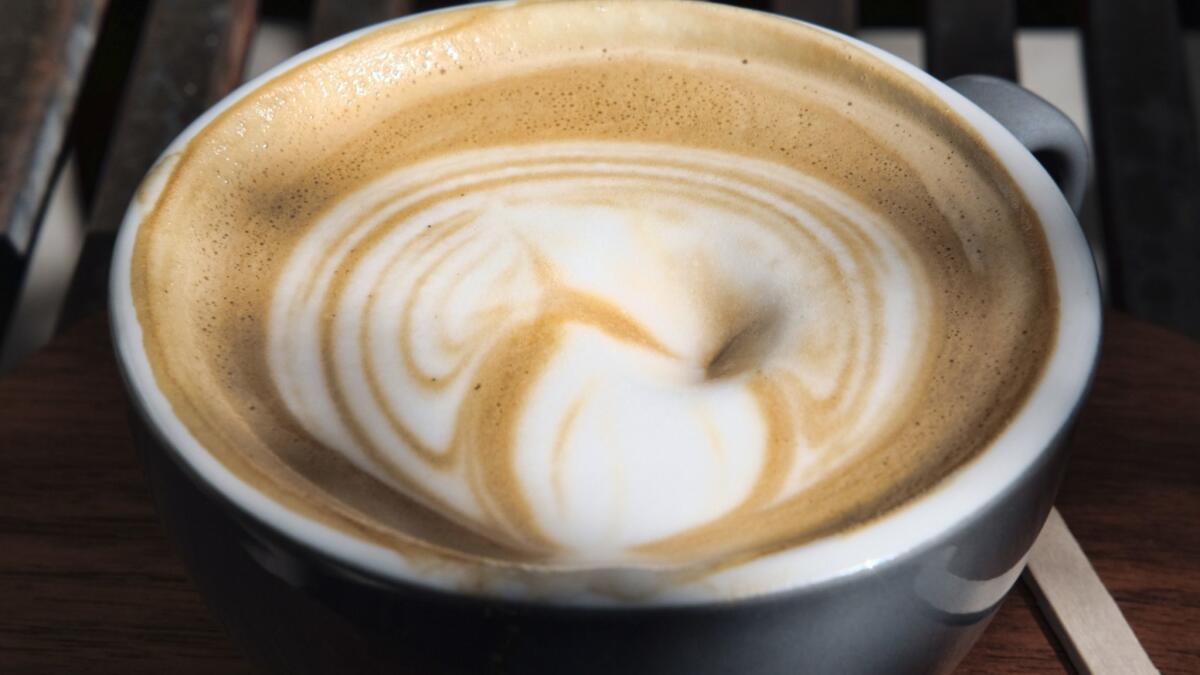Go ahead and drink your coffee, public health experts say

- Share via
A California court ruling this week that a cancer warning label should be required on coffee has left the scientific community puzzled.
There is plenty of research showing that coffee doesn’t cause cancer, and can actually prevent liver and endometrial cancer. The World Health Organization announced two years ago that there was “no conclusive evidence for a carcinogenic effect of drinking coffee.”
The decision has put public health experts at odds with a state law aimed at safeguarding the health of Californians.
“I can understand the logic of the judge, by going by the book. But I can also understand the science,” said Mariana Carla Stern, a USC professor who studies diet and cancer. “From the science standpoint, there’s no reason the public should worry about drinking coffee.”
California’s Proposition 65, officially known as the Safe Drinking Water and Toxic Enforcement Act of 1986, requires that businesses warn customers if they could be exposed to any of the more than 900 confirmed or suspected carcinogens. One of compounds on the list is acrylamide, which is found in French fries, burnt toast and roasted coffee beans.
Some studies in animals have found that exposure to high levels of acrylamide causes cancer, but there’s little evidence of that in humans, said Kathryn Wilson, a Harvard senior research scientist who studies links between diet and cancer. Researchers also warn that it’s unwise to extrapolate acrylamide studies in animals to humans because the species metabolize the compound differently.
“I think it’s crazy,” Wilson said of the court’s decision. “Reducing coffee or French fries to their acrylamide content isn’t how we study diet and nutrition.”
Many pointed out that Proposition 65 doesn’t account for the positive benefits of coffee.
“This is an unfortunate ruling that demonizes coffee as a carcinogen when the overwhelming evidence in humans is for benefit or at least no detrimental effect,” Dr. Nigel Brockton, director of research at the American Institute of Cancer Research, said in a statement.
Nina Fujii, who was picking up a cup of coffee at Starbucks in Los Feliz on Friday, said a label would make her rethink her coffee consumption.
Fujii, a 24-year-old actress, said she remembered seeing a cancer warning at an El Pollo Loco two years ago. The sign is part of the reason she stopped going there, she said.
More than 90 coffee roasters, retailers and distributors, including Whole Foods, Kraft and Green Mountain Coffee Roasters, stand to be affected by Thursday’s decision.
William Murray, president of the National Coffee Assn., said the industry is considering legal action. The decision “does nothing to improve public health,” he said in a statement.
The Council for Education and Research on Toxics sued ready-to-drink coffee companies in 2010 for not providing cancer hazard warnings due to the acrylamide content.
In a tentative decision, Los Angeles County Superior Court Judge Elihu M. Berle said that the coffee companies failed to prove there was a safe level of acrylamide in their products. He wrote that while the plaintiff showed that coffee can harm people, “defendants’ medical and epidemiology experts testified that they had no opinion on causation.”
Berle will issue a final decision after giving each side an opportunity to object. The next phase of the trial will determine the civil penalties to be levied on the defendants.
The law allows for as little as a cent and up to $2,500 for each time a consumer was exposed to the chemical without being warned, said Raphael Metzger, the plaintiff’s attorney.
Public health experts said they worried the ruling would confuse the public, who already often feel that nutrition science is constantly shifting.
Wilson, the Harvard researcher, said she feared it would detract attention from things that are clearly linked to cancer, such as obesity and lack of exercise.
“It’s too bad for public health,” she said.
Dr. Frank Hu, chair of the nutrition department at the Harvard T.H. Chan School of Public Health, pointed out that coffee has been found to reduce the risk of diabetes and heart disease. The latest American dietary guidelines say the beverage is OK to drink (up to 5 cups a day). He said the ruling seemed meaningless given the “minuscule amount” of acrylamide in coffee.
“If the concentration level is so low, then what’s the meaning of labeling those foods?” he said.
Will Kiker, 37, said a warning wouldn’t keep him from his daily venti coffee with an extra shot.
He doesn’t eat processed food or high-fructose corn syrup, but he smokes cigarettes and walks into friends’ apartment buildings even if they have posted signs about carcinogens. He said he could understand a need for labels on a new product, but he found it pointless for coffee.
“You could put a warning label on L.A. You’re breathing in toxic fumes if you put your windows down on the freeway,” said Kiker, a music manager. “It’s a little ridiculous to put a warning on coffee.”
soumya.karlamangla@latimes.com
Twitter: @skarlamangla
Twitter: @vicjkim
More to Read
Sign up for Essential California
The most important California stories and recommendations in your inbox every morning.
You may occasionally receive promotional content from the Los Angeles Times.















